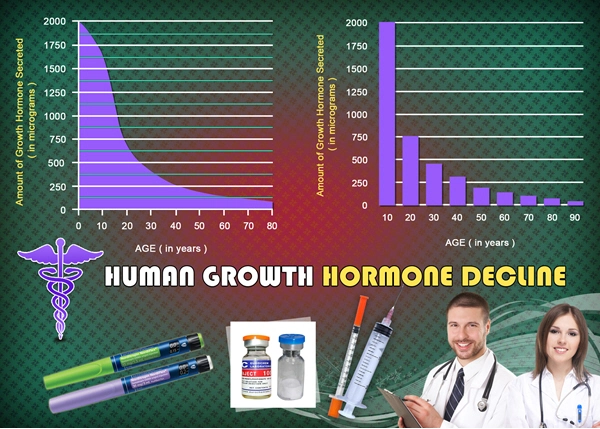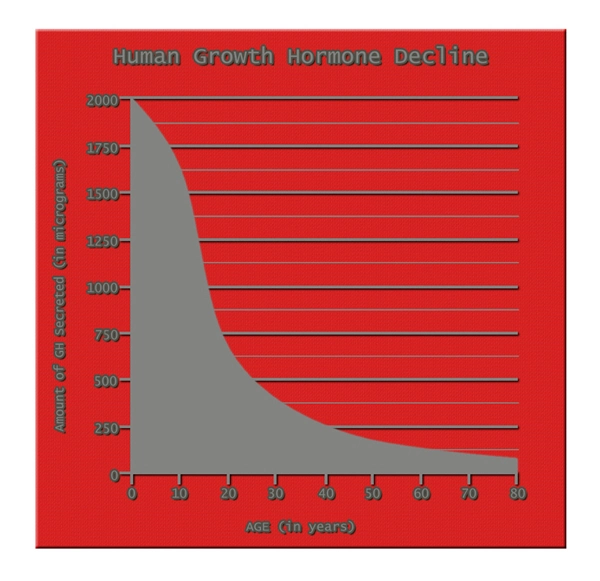Introduction
Hypopituitarism, a condition characterized by the diminished secretion of one or more pituitary hormones, often presents with a myriad of clinical challenges. When associated with diabetes insipidus (DI), a disorder marked by the inability to concentrate urine, the complexity of managing fluid and electrolyte balance significantly increases. This article delves into a retrospective study examining the interplay between hypopituitarism and DI in American males, focusing on the critical aspects of fluid and electrolyte management.
Understanding Hypopituitarism and Diabetes Insipidus
Hypopituitarism results from the inadequate production of hormones by the pituitary gland, which can stem from various causes such as tumors, trauma, or autoimmune diseases. Among its many manifestations, hypopituitarism can lead to deficiencies in hormones like growth hormone, thyroid-stimulating hormone, and adrenocorticotropic hormone. When hypopituitarism coexists with DI, a condition characterized by excessive thirst and urine output due to the lack of antidiuretic hormone (ADH), the clinical management becomes particularly challenging. DI can be central, resulting from deficient ADH secretion, or nephrogenic, due to kidney resistance to ADH.
Clinical Presentation and Diagnosis
American males with hypopituitarism and DI often present with symptoms such as extreme thirst, polyuria, and dehydration. The diagnosis of these conditions involves a thorough clinical evaluation, including hormone level assessments and water deprivation tests. The coexistence of these disorders necessitates a detailed diagnostic approach to differentiate between the various forms of DI and to identify the underlying cause of hypopituitarism.
Fluid and Electrolyte Management
The management of fluid and electrolyte balance in patients with hypopituitarism and DI is paramount. These patients are at an increased risk of dehydration and electrolyte imbalances, which can lead to severe complications such as hyponatremia or hypernatremia. Treatment strategies typically involve hormone replacement therapy for hypopituitarism and the use of desmopressin, a synthetic analog of ADH, for DI. Careful monitoring of fluid intake and output, as well as regular assessments of serum electrolytes, is crucial to prevent adverse outcomes.
Retrospective Study Findings
In a retrospective study conducted on American males with hypopituitarism and DI, it was observed that the majority of patients required long-term desmopressin therapy to manage their DI effectively. The study also highlighted the importance of individualized treatment plans, as patients exhibited varying responses to hormone replacement therapies. Additionally, the study emphasized the need for regular follow-up appointments to adjust treatment regimens and monitor for potential complications such as adrenal insufficiency or thyroid dysfunction.
Challenges and Considerations
Managing hypopituitarism and DI in American males presents several challenges. The variability in clinical presentation and response to treatment requires a tailored approach to each patient. Furthermore, the potential for interactions between different hormone replacement therapies necessitates careful monitoring and adjustment of treatment plans. Patients must be educated on the importance of adhering to their medication regimens and monitoring their fluid intake and output to maintain optimal health.
Conclusion
The coexistence of hypopituitarism and diabetes insipidus in American males poses significant challenges in managing fluid and electrolyte balance. Through a retrospective study, it is evident that a comprehensive and individualized approach to treatment is essential. By understanding the clinical presentation, implementing effective management strategies, and addressing the unique needs of each patient, healthcare providers can improve outcomes and enhance the quality of life for those affected by these complex conditions.

- Unraveling the Link Between Hypopituitarism and Metabolic Syndrome in American Males [Last Updated On: March 9th, 2025] [Originally Added On: March 9th, 2025]
- Hypopituitarism in American Men: Impacts and Management Strategies [Last Updated On: March 11th, 2025] [Originally Added On: March 11th, 2025]
- Unveiling the Cardiovascular Risks Associated with Hypopituitarism in American Males [Last Updated On: March 12th, 2025] [Originally Added On: March 12th, 2025]
- Unveiling the Cardiovascular Implications of Hypopituitarism in American Males [Last Updated On: March 16th, 2025] [Originally Added On: March 16th, 2025]
- Unraveling the Connection: Hypopituitarism and Uterine Fibroids in American Males [Last Updated On: March 16th, 2025] [Originally Added On: March 16th, 2025]
- Exploring Hypopituitarism's Impact on Vaginal Health and the Female Reproductive System [Last Updated On: March 16th, 2025] [Originally Added On: March 16th, 2025]
- Unraveling the Hormonal Link Between Hypopituitarism and Breast Cancer in American Males [Last Updated On: March 16th, 2025] [Originally Added On: March 16th, 2025]
- Hypopituitarism in American Males: Cognitive Impacts and Management Strategies [Last Updated On: March 17th, 2025] [Originally Added On: March 17th, 2025]
- Surgery for Hypopituitarism and Pituitary Tumors in American Males: Benefits and Risks [Last Updated On: March 18th, 2025] [Originally Added On: March 18th, 2025]
- Hypopituitarism's Impact on Skin Health in American Males: Symptoms, Diagnosis, and Management [Last Updated On: March 18th, 2025] [Originally Added On: March 18th, 2025]
- Hypopituitarism in American Males: Cancer Risks and Management Strategies [Last Updated On: March 19th, 2025] [Originally Added On: March 19th, 2025]
- Hypopituitarism in American Males: Managing Depression and Anxiety [Last Updated On: March 19th, 2025] [Originally Added On: March 19th, 2025]
- Hypopituitarism in American Men: Hormonal Imbalance and Sleep Disturbance Effects [Last Updated On: March 20th, 2025] [Originally Added On: March 20th, 2025]
- Hypopituitarism and Obesity in American Males: Diagnosis, Management, and Hormonal Links [Last Updated On: March 20th, 2025] [Originally Added On: March 20th, 2025]
- Hypopituitarism and Autoimmune Disorders: Implications for American Males [Last Updated On: March 20th, 2025] [Originally Added On: March 20th, 2025]
- Multidisciplinary Care Essential for Managing Hypopituitarism in American Males [Last Updated On: March 21st, 2025] [Originally Added On: March 21st, 2025]
- Hypopituitarism in American Males: Impact on Eye Health and Visual Impairments [Last Updated On: March 21st, 2025] [Originally Added On: March 21st, 2025]
- Hypopituitarism in American Males: Impact on Kidney Function and Management Strategies [Last Updated On: March 21st, 2025] [Originally Added On: March 21st, 2025]
- Hypopituitarism in Aging American Males: Symptoms, Impact, and Management Strategies [Last Updated On: March 21st, 2025] [Originally Added On: March 21st, 2025]
- Hypopituitarism and Allergies: Exploring Hormonal Impacts on Immune Response in American Males [Last Updated On: March 22nd, 2025] [Originally Added On: March 22nd, 2025]
- Hypopituitarism's Impact on Gastrointestinal Health in American Males [Last Updated On: March 22nd, 2025] [Originally Added On: March 22nd, 2025]
- Hypopituitarism and Anemia: Erythropoietin Deficiency's Role in American Males [Last Updated On: March 22nd, 2025] [Originally Added On: March 22nd, 2025]
- Hypopituitarism's Impact on Muscle Strength in American Males: Causes and Management [Last Updated On: March 23rd, 2025] [Originally Added On: March 23rd, 2025]
- Hypopituitarism and Hair Loss: Impacts and Treatments for American Males [Last Updated On: March 23rd, 2025] [Originally Added On: March 23rd, 2025]
- Hypopituitarism's Impact on Asthma in American Males: Hormonal Links and Management [Last Updated On: March 23rd, 2025] [Originally Added On: March 23rd, 2025]
- Hypopituitarism and Hearing Loss: Exploring the Link in American Males [Last Updated On: March 23rd, 2025] [Originally Added On: March 23rd, 2025]
- Exploring the Link Between Hypopituitarism and MS in American Males: Clinical Insights [Last Updated On: March 23rd, 2025] [Originally Added On: March 23rd, 2025]
- Hypopituitarism and Dyslipidemia: Hormonal Impacts on Lipid Profiles in American Males [Last Updated On: March 23rd, 2025] [Originally Added On: March 23rd, 2025]
- Hypopituitarism's Link to Alzheimer's in American Males: Hormonal Imbalances and Cognitive Decline [Last Updated On: March 24th, 2025] [Originally Added On: March 24th, 2025]
- Hypopituitarism and Migraines in American Males: Hormonal Fluctuations and Management Strategies [Last Updated On: March 24th, 2025] [Originally Added On: March 24th, 2025]
- Hypopituitarism and Hypertension: Impacts and Management in American Males [Last Updated On: March 24th, 2025] [Originally Added On: March 24th, 2025]
- Hypopituitarism in American Males: Hormonal Impact on Joint Health and Management Strategies [Last Updated On: March 24th, 2025] [Originally Added On: March 24th, 2025]
- Hypopituitarism's Impact on Liver Health in American Males: Mechanisms and Management [Last Updated On: March 24th, 2025] [Originally Added On: March 24th, 2025]
- Hypopituitarism and Stroke Risk in American Males: Hormonal Monitoring and Prevention Strategies [Last Updated On: March 24th, 2025] [Originally Added On: March 24th, 2025]
- Hypopituitarism's Impact on Osteoarthritis in American Males: A Comprehensive Overview [Last Updated On: March 24th, 2025] [Originally Added On: March 24th, 2025]
- Hypopituitarism's Impact on Immune Function in American Males: Diagnosis and Management [Last Updated On: March 24th, 2025] [Originally Added On: March 24th, 2025]
- Hypopituitarism's Impact on Pancreatitis: Risks and Management for American Males [Last Updated On: March 24th, 2025] [Originally Added On: March 24th, 2025]
- Hypopituitarism and Seizures in American Males: Neurological Links and Management [Last Updated On: March 24th, 2025] [Originally Added On: March 24th, 2025]
- Hypopituitarism and Diabetes: Impact on Glucose Metabolism in American Males [Last Updated On: March 25th, 2025] [Originally Added On: March 25th, 2025]
- Hypopituitarism and Chronic Fatigue Syndrome: Overlap and Impact on American Men [Last Updated On: March 25th, 2025] [Originally Added On: March 25th, 2025]
- Hypopituitarism in American Males: Cardiovascular Risks and Management Strategies [Last Updated On: March 25th, 2025] [Originally Added On: March 25th, 2025]
- Autoimmune Link Between Hypopituitarism and RA: Implications for American Males [Last Updated On: March 25th, 2025] [Originally Added On: March 25th, 2025]
- Hypopituitarism and Fibromyalgia: Overlapping Symptoms and Management in American Males [Last Updated On: March 26th, 2025] [Originally Added On: March 26th, 2025]
- Hypopituitarism and Pituitary Cancer: Symptoms, Detection, and Management in American Males [Last Updated On: March 26th, 2025] [Originally Added On: March 26th, 2025]
- Hypopituitarism and Gallbladder Disease: Emerging Links and Implications for American Males [Last Updated On: March 26th, 2025] [Originally Added On: March 26th, 2025]
- Hypopituitarism and Breast Cancer in American Males: Hormonal Links and Clinical Insights [Last Updated On: March 26th, 2025] [Originally Added On: March 26th, 2025]
- Hypopituitarism and Sjögren's Syndrome: Effects on Exocrine Glands in American Males [Last Updated On: March 27th, 2025] [Originally Added On: March 27th, 2025]
- Hypopituitarism's Role in Parkinson's Disease Progression and Management [Last Updated On: March 27th, 2025] [Originally Added On: March 27th, 2025]
- Exploring Hypopituitarism and Lupus Connection in American Males: Clinical Insights [Last Updated On: March 27th, 2025] [Originally Added On: March 27th, 2025]
- Hypopituitarism in American Males: Impacts on Kidney Health and Management Strategies [Last Updated On: March 28th, 2025] [Originally Added On: March 28th, 2025]
- Hypopituitarism and Gout: Uric Acid Link in American Males [Last Updated On: March 28th, 2025] [Originally Added On: March 28th, 2025]
- Autoimmune Links Between Hypopituitarism and Celiac Disease in American Males [Last Updated On: March 28th, 2025] [Originally Added On: March 28th, 2025]
- Hypopituitarism and Liver Cirrhosis: Impact on Hepatic Function in American Males [Last Updated On: March 29th, 2025] [Originally Added On: March 29th, 2025]
- Hypopituitarism and IBD Link in American Males: Gastrointestinal and Hormonal Interplay [Last Updated On: March 29th, 2025] [Originally Added On: March 29th, 2025]
- Hypopituitarism and Adrenal Cancer: Endocrine System Interplay and Management in American Males [Last Updated On: March 29th, 2025] [Originally Added On: March 29th, 2025]
- Hypopituitarism and Ovarian Cancer: Exploring Gynecological Links in American Males [Last Updated On: March 30th, 2025] [Originally Added On: March 30th, 2025]
- Hypopituitarism's Impact on Thyroid Cancer Risk in American Males [Last Updated On: March 30th, 2025] [Originally Added On: March 30th, 2025]
- Hypopituitarism's Impact on Prostate Cancer Risk and Management in American Males [Last Updated On: March 31st, 2025] [Originally Added On: March 31st, 2025]
- Hypopituitarism and Testicular Cancer: Impacts on Male Fertility and Preservation Strategies [Last Updated On: March 31st, 2025] [Originally Added On: March 31st, 2025]
- Hormonal Links Between Hypopituitarism and Endometriosis in American Males Explored [Last Updated On: April 1st, 2025] [Originally Added On: April 1st, 2025]
- Hypopituitarism and Uterine Fibroids: Exploring Gynecological Links in American Males [Last Updated On: April 1st, 2025] [Originally Added On: April 1st, 2025]
- Hypopituitarism and PCOS: Impacts, Diagnosis, and Management in Women's Health [Last Updated On: April 2nd, 2025] [Originally Added On: April 2nd, 2025]
- Hypopituitarism's Impact on Penile Health in American Males: Diagnosis and Management [Last Updated On: April 6th, 2025] [Originally Added On: April 6th, 2025]
- Hypopituitarism's Impact on Male Vaginal Health: Hormonal Imbalances and Comprehensive Care [Last Updated On: April 7th, 2025] [Originally Added On: April 7th, 2025]
- Hypopituitarism and Premature Ejaculation: Exploring Links and Treatment in American Males [Last Updated On: April 8th, 2025] [Originally Added On: April 8th, 2025]
- Hypopituitarism's Impact on Male Fertility: Diagnosis, Management, and Treatment for American Men [Last Updated On: April 10th, 2025] [Originally Added On: April 10th, 2025]
- Hypopituitarism and Cervical Cancer: The Crucial Role of Hormonal Monitoring [Last Updated On: April 10th, 2025] [Originally Added On: April 10th, 2025]
- Hypopituitarism and Erectile Dysfunction: Hormonal Links and Treatment Strategies [Last Updated On: April 10th, 2025] [Originally Added On: April 10th, 2025]
- Hypopituitarism and Preeclampsia: The Critical Need for Hormonal Monitoring in Pregnancy [Last Updated On: April 10th, 2025] [Originally Added On: April 10th, 2025]
- Hypopituitarism and Postpartum Depression: Impacts on Mental Health in American Males [Last Updated On: April 12th, 2025] [Originally Added On: April 12th, 2025]
- Hypopituitarism in American Males: Hormonal Impacts on Fertility and Miscarriage Risk [Last Updated On: April 12th, 2025] [Originally Added On: April 12th, 2025]
- Exploring the Metabolic Link Between Hypopituitarism and Gestational Diabetes in American Males [Last Updated On: April 13th, 2025] [Originally Added On: April 13th, 2025]
- Hypopituitarism and Ectopic Pregnancy: Impacts on Women and Role of American Males [Last Updated On: April 13th, 2025] [Originally Added On: April 13th, 2025]
- Hypopituitarism and Acne in American Males: Hormonal Links and Management Strategies [Last Updated On: April 15th, 2025] [Originally Added On: April 15th, 2025]
- Hypopituitarism's Impact on Menopause: Diagnosis, Management, and Hormonal Balance [Last Updated On: April 15th, 2025] [Originally Added On: April 15th, 2025]
- Hypopituitarism's Impact on Lactation in American Males: Challenges and Management [Last Updated On: April 15th, 2025] [Originally Added On: April 15th, 2025]
- Hypopituitarism and Alopecia: Hormonal Imbalances and Hair Loss in American Males [Last Updated On: April 16th, 2025] [Originally Added On: April 16th, 2025]
- Hypopituitarism and Andropause: Impacts, Diagnosis, and Management in Aging Men [Last Updated On: April 18th, 2025] [Originally Added On: April 18th, 2025]
- Hypopituitarism and Vision Loss in American Males: Mechanisms, Symptoms, and Management [Last Updated On: April 18th, 2025] [Originally Added On: April 18th, 2025]
- Hormonal Link Between Hypopituitarism and Hirsutism in American Males: Impacts and Management [Last Updated On: April 18th, 2025] [Originally Added On: April 18th, 2025]



List of USA state clinics - click a flag below for blood testing clinics.
Word Count: 538


















































